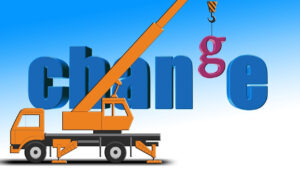Recent rumors that PacWest and Western Alliance were either seeking a sale or outside strategic guidance resulted in stock losses of around 60% and 40% respectively in just a few days. Some large institutional private lenders owned by banks even slowed down or put a pause on lending due to their parent companies’ issues.
Even though the reports concerning PacWest and Western Alliance were either denied or denounced as falsehoods and stocks for both organizations rebounded nicely, the reaction by the stock market, lenders, and consumers underscored a certain level of volatility and uncertainty in the banking system.
Such volatility creates openings for opportunistic bankers and traders to manipulate stock prices and market realities by playing on investor and consumer emotions.

Fortunately, private “Main Street” lenders like Enact Partners are NOT affected by banking system volatility, the actions of the FDIC, or stock market activities like traditional lenders and Wall Street lenders are. Enact Partners is open for business and continues to lend on CRE projects with solid fundamentals.
That said, the banking system and borrowers that depend on it appear headed for continued tough times ahead.
A Crisis of Confidence
When bank stocks crash, either due to actual or perceived market realities, the subsequent crisis of confidence causes many customers to pull deposits from small-to-medium-size banks in favor of large “too big to fail” banks. This creates a snowball effect where depositors leave smaller banks for bigger banks in search of greater security.
This reaction is somewhat unique to the banking industry. Consider this: if Ford’s stock were to lose 50% of its value, people would still buy F-150s; but when bank stocks crash, customers panic and quickly pull their deposits. A good example of this is the recent run on First Republic Bank. The run may not have been due to any fundamental issue with the company’s financials or performance, but it still tanked the stock, causing First Republic’s market value to drop so low that the FDIC stepped in.
As a result, First Republic was sold to JP Morgan Chase last week. Of note, Chase already has 10% of the country’s deposits and had to get a special waiver from the government just to be allowed to purchase another deposit-holding bank. Thus, the biggest bank in the country (Chase) got even bigger and the deal cost the FDIC Insurance Fund (which is bankrolled by fees paid by EVERY FDIC-insured bank in the country) $13 billion! To offset, the FDIC will almost certainly raise insurance fees on all banks, including small banks that had nothing to do with the crisis—costs that will be passed on to consumers eventually.
In short, uncertainty and lack of consumer confidence in the banking system isn’t likely to go away any time soon.
Tightening Credit from Banks
One consequence of all this uncertainty is that small-to-mid-size banks are beginning to require larger deposits from business borrowers in order for them to secure loans. This can be quite a challenge for many commercial real estate developers who prefer to put their money into real estate, not deposit accounts.
In late April, Western Alliance’s CFO announced that “we now need to tie more of the deposit commitment to the loan documents, such that if they (depositors) do move money, the penalty pricing is severe.”
While it’s common for banks to require business borrowers to maintain deposit accounts with the bank, those required deposit amounts are now expected to grow significantly. In addition, as credit tightens, some expect bankers to demand greater say in the projects funded by their loans, similar to how venture capital firms operate.
Of course, banks are trying to do their part to prevent customers from panicking, touting their continued strength, soundness, and stability. While this is all well and good—after all, no rank-and-file consumers benefit when banks fail—the upshot for borrowers, and especially borrowers seeking financing for commercial real estate acquisitions or construction, is that loans from traditional lenders are going to become much tougher to get.
These developments are especially important to real estate investors and builders because all of those smaller, regional banks that are NOT considered too big to fail by the Feds account for 80% of the commercial real estate lending in this country. Given the current climate, these banks are going to be much more averse to lending for commercial real estate projects going forward.
Why Enact Partners is Different
Enact Partners does not have depositors. We have investors, which drastically reduces the risk of a run on our funds. Also, a private lender like Enact Partners provides investors looking for a stable source of return and monthly cash flow a desirable investment alternative to the stock market. In fact, we have steady interest from new investors.
Enact Partners expects the next year or two to be a very busy and rewarding time for private lenders. We don’t require deposits, the FDIC can’t tell us how to underwrite, and we have extensive experience in the commercial real estate development and investment space. For borrowers facing the prospect of working with banks unwilling or unable to lend, that makes Enact Partners the perfect lending partner to help them turn their commercial real estate investment opportunities into reality.
Contact Us About Your Borrowing Needs
(760) 516-7776 | [email protected] | www.enactpartners.com





